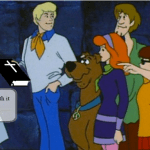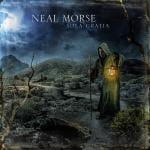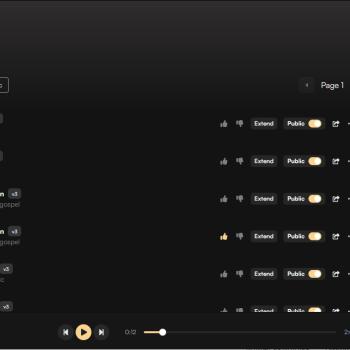Call for Papers: The Image of Religion & Political Theology in Contemporary Pop Culture
The highly popular and widely disseminated picture of a pregnant Beyoncé surrounded by flowers is a strong
symbolic embodiment of a religious image and a political theological message. A black “Madonna” as the queen of
music. It almost encapsulates her own words. “Who run the world” – “Beyoncé”. This pop cultural picturesque image reveals the high impact popular cultural messages can achieve with the use of religious forms and a political
theological backdrop. This goes far beyond the images. Religion and theology can be easily found in a variety of pop
culture products: from TV shows, through James Bond movies, cookbooks, to children literature – religion and
theology is framed and reframed in novel ways. These products carry a vast array of messages towards their
audience – religiously infused messages, which might have a deeper impact on the broader society than hundreds of
theological dissertations. Therefore, they call for critical assessments.
We call for a wide range of empirical case studies and theoretical papers on the subject of religion, political theology
and pop culture. We have invited a number of scholars from theology and religious studies, who will try to dig into
the world of contemporary popular culture in order to reveal and discuss the theological or religious messages,
forms and figures used. This is the first step in gaining a better perspective on the impact, that such forms of
theology and religion have on society at large.
The workshop is jointly held between University of Copenhagen and Lund University.
The conference is generously funded by CEMES and the Faculty of Theology at the University of Copenhagen as
well as the Centre for Theology and Religious Studies at Lund University. There is therefore no participant’s fee and
all speakers are invited to lunch and dinner.
Travel and accommodation are not covered by the conference.
CALL FOR PAPERS
Have you spent hours after hours procrastinating during lockdown with James Bonds movies
waiting for the new one to come out? And have you then begun to wonder what role religion actually
plays in James Bond movies? Or have you spent quarantine with your childhood heroes and you are
now looking for hidden religious hints and tokens in Rowling’s works and their adaptions on screen?
If so, this is the conference for you, where we will zoom in on the often-hidden forms and figures of
religion and theology in popular culture.
Popular culture is today an emerging field in a variety of culturally- and historically-oriented
disciplines. In theology and religious studies, there is a long-standing tradition of studying one’s core
theme within very different forms of cultural products, although usually not in a contemporary
setting. Rarely are the popular products of today critically assessed, despite the fact that these
products are often the most influential for our time. The popularization of religion and, in particular,
Christianity is a widespread and old phenomenon. First, the Gospels in antiquity, and later allegorical
epic such as Prudentius Psychomachia from the fifth century, popularized the Christian message to
a broader audience. This tradition of popularization caught on in the medieval period as witnessed
by the widespread tradition of Easter plays of Adam in Eve, monastic plays such as Hildegard of
Bingen’s Ordo virtutem and the introduction of the Poor Man’s Bible (Biblia pauperum) only
consisting of pictures. The need for popularization became even stronger after the Reformation and
Counter-Reformation in order to get the message across and win the support from rulers and
peasants alike. Luther’s catechism is just one out of many works from this era, speaking directly to
the family in a plain manner.
In today’s world, the popularization of Christianity is no longer monopolized within a church and is no
longer only serving religious communities’ interests. The language, themes and figures of religion
are spread across popular culture and used in very different ways. The story of Adam and Eve is no
longer only about original sin and redemption, but can today be used as means of selling energy
drinks in a short commercial. Christ is no longer just on the cross. He can be found on sandals in
supermarkets or in bestsellers speculating about his love life.
In many of today’s popular products, a theological message or religious symbols are discussed
through language, narratives or symbols in order to comment, raise critic or convey a new
theological perspective on urgent political or religious questions. In other cases, religious symbolism
is used simply to create a recognizable narrative in order to sell stuff or to make people laugh. Jesus,
as an example, seems to be an ever-present figure in American cartoons, such as South Park,
Simpsons, American Dad or Family Guy in which he embodies the American way of life or becomes
a caricature of American religiosity.
The agenda of this conference is quite simple – we want to put the spotlight on the contemporary
popular products we all are influenced by and open up for a discussion of the theological themes
and religious patterns in them. We call for a multitude of case-studies without a narrow definition of
either political theology, religious studies or popular culture. In doing so, the organizers hope to allow
for a stimulating discussion, which, in turn, might provide some lines along which a common agenda
could be formulated.
Paper proposals of about 300 words should be sent to [email protected] by October 14,
2020.
The intention of this workshop is to establish a loose network for the study of popular culture and
theology in the Nordic countries. We also plan to publish a selection of papers.
CONFIRMED KEYNOTE SPEAKERS
Anne Katrine de Hemmer Gudme, Professor at Oslo University. Gudme’s latest book,
Himmelsk føde og forbuden frugt [Food and Drink in the Bible] (2018) considers not only the
biblical notions of food and drink, but also the influence of such notions on modern society’s
approach to food and drinks.
Jonas Otterbeck, Professor and Head of Research at the Institute for the Study of Muslim
Civilisations, Aga Khan University, London. Otterbeck worked extensively on the subject of
Islam and popular music
Teemu Taira – Senior Lecturer in Study of Religion at the University of Helsinki. Taira is the
co-author of the book Media Portrayals of Religion and the Secular Sacred (2013) and has
recently published a new study of James Bond and religion (2019).
FORM OF THE CONFERENCE
The first day of the workshop will be held at the University of Copenhagen, while the second will be
held at Lund University. Each day will begin with a keynote lecture followed by presentations of
papers throughout the day.
The participants will be asked to hand in a 5-pages draft a week before the conference commence.
These drafts will be distributed amongst the participants beforehand and a respondent will be
picked for each paper. This will hopefully contribute to a deeper discussion of the themes and cases
in each presentation.
Extra measures taken due to covid-19: Due to the covid-19 outbreak the physical participation at the
conference will be limited to researchers and students residing in the Nordic countries. All other
participants are welcome to join digitally. We hope that a blended conference is feasible in
November and it will be conveyed as such – with proper security.
If the outbreak and lockdown continue into November, the conference might be moved completely
online. The situation will be monitored and official regulations will be followed.
All presentations in all scenarios will be live-streamed and, if participants agree, uploaded on
YouTube in order to allow others to access the talks and papers.
Each presenter will be asked to publish their short presentation (5 pages) of their topic online in
advance if the conference goes completely online in order to enhance the discussion and the Q&A session online.
THE ORGANISING COMMITTEE
Johanna Gustafsson Lundberg – Deputy Head of Department, Senior Lecturer at the Centre for Theology and
Religious Studies, Lund University
Carsten Selch Jensen – Dean, Associate Professor at the Faculty of Theology, University of Copenhagen
Emil Saggau – Ph.D. Student in Church History, Faculty of Theology, University of Copenhagen
Ryszard Bobrowicz – Ph.D. Student in Practical Theology, Centre for Theology and Religious Studies, Lund
University
VENUE
Venue: 16th November at University of Copenhagen, Southern Campus, Islands Brygge, Copenhagen
Venue: 17th November at Lund University, Centre for Theology and Religious Studies, Lund













